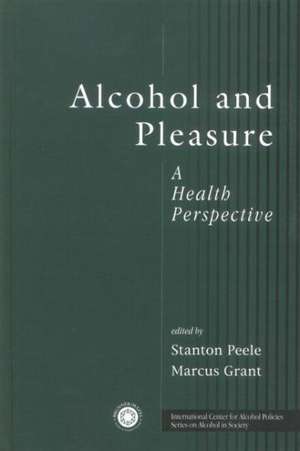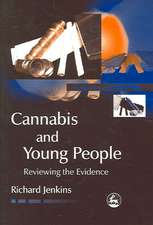Alcohol and Pleasure: A Health Perspective: ICAP Series on Alcohol in Society
Editat de Stanton Peele, Marcus Granten Limba Engleză Paperback – dec 2014
| Toate formatele și edițiile | Preț | Express |
|---|---|---|
| Paperback (1) | 406.99 lei 6-8 săpt. | |
| Taylor & Francis – dec 2014 | 406.99 lei 6-8 săpt. | |
| Hardback (1) | 1107.65 lei 6-8 săpt. | |
| Taylor & Francis – iun 1999 | 1107.65 lei 6-8 săpt. |
Preț: 406.99 lei
Preț vechi: 428.41 lei
-5% Nou
Puncte Express: 610
Preț estimativ în valută:
77.88€ • 81.60$ • 64.38£
77.88€ • 81.60$ • 64.38£
Carte tipărită la comandă
Livrare economică 11-25 aprilie
Preluare comenzi: 021 569.72.76
Specificații
ISBN-13: 9781138011861
ISBN-10: 113801186X
Pagini: 436
Dimensiuni: 152 x 229 x 23 mm
Greutate: 0.59 kg
Ediția:1
Editura: Taylor & Francis
Colecția Routledge
Seria ICAP Series on Alcohol in Society
Locul publicării:Oxford, United Kingdom
ISBN-10: 113801186X
Pagini: 436
Dimensiuni: 152 x 229 x 23 mm
Greutate: 0.59 kg
Ediția:1
Editura: Taylor & Francis
Colecția Routledge
Seria ICAP Series on Alcohol in Society
Locul publicării:Oxford, United Kingdom
Cuprins
Part I: Pleasure and Health surveys evidence that points to pleasure as an essential element of physical and mental health and discusses the resulting implications for public health policy. Part II: Pleasure and Alcohol Cross-Culturally provides a series of case studies examining the impact of pleasure on the nature of and trends in drinking in both the developed and the developing world. Part III: Alcohol and Medical, Psychological, and Social Health reviews the range of health benefits that are drawn from moderate consumption of alcohol and the extent to which these suggest room for positive public health recommendations on drinking. Part IV: Drinking Expectations and Contexts explores the array of non-pharmacological factors that add to, modify, or direct human reactions to alcohol. Part V: Pleasure and Alcohol Policy tackles evolving conceptions of health as found in the World Health Organization's Quality of Life project. Finally, Part VI draws conclusions from the volume as a whole and the conference on which it is based.





















